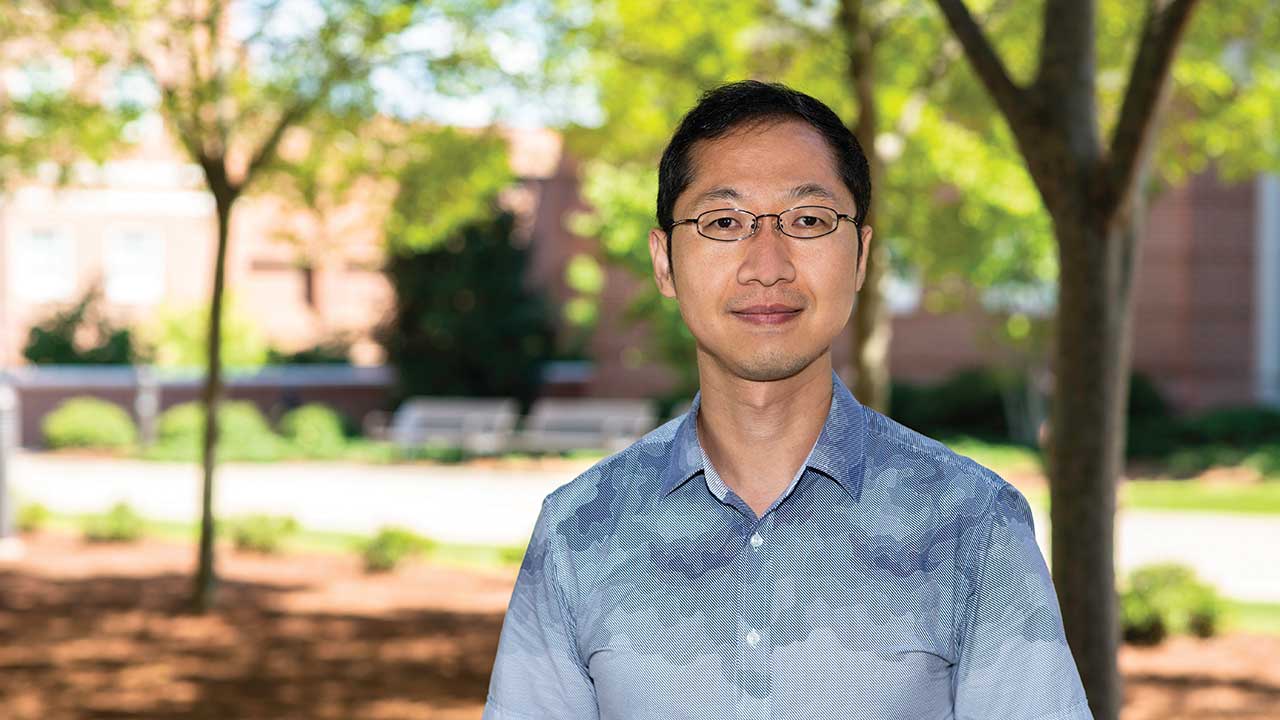ISE assistant professor leads NSF grant to transform the distributed additive manufacturing industry
Published: Jan 26, 2022 3:50 PM
By Alyssa Turner
Jia (Peter) Liu, Auburn University assistant professor of industrial and systems engineering, is the principal investigator of a multi-disciplinary team of scientists that was awarded a $498,762 grant by the National Science Foundation for their project, “FMSG: Cyber: Federated Deep Learning for Future Ubiquitous Distributed Additive Manufacturing.”
Co-principal investigators are Nima Shamsaei, Philpott-WestPoint Stevens Distinguished Professor of mechanical engineering and director of the National Center for Additive Manufacturing Excellence (NCAME), and Yue Cheng, assistant professor in computer science at George Mason University.
As a global shift to distributed manufacturing embodies a forward-thinking prospect of localized on-demand production, a flexible supply chain and high energy efficiency and sustainability, the adoption of additive manufacturing (AM) in a distributed manufacturing paradigm maximizes the potential of freeform production and supply chain participation.
This Future Manufacturing Seed Grant (FMSG) project introduces developing a unified algorithmic and training framework, Federated Modular Deep Learning (FedMDL), for future distributed AM. Aiming to address the challenges of inconsistent product quality and data sparsity due to the innate technological complexity of AM and social barriers of privacy concerns, FedMDL will ensure reliable production, consistent qualification and privacy-preserving information sharing at two levels: algorithmic and cyber-infrastructural.
At the algorithm level of FedMDL, new material-process-structure-property-performance correlations of AM products are discovered by creating physics-centric, modular deep learning models.
The cyber-infrastructure level integrates the federal learning paradigm to empower the robust training of data-hungry DL by leveraging sparse, siloed datasets distributed across individual AM manufacturers.
According to Liu, the potential benefits of distributed AM in the supply chain are driving research efforts in the U.S. and across the globe.
“For instance, during the COVID-19 pandemic, the 3D Printing COVID-19 rapid response initiative in the U.S. provided nearly one million pieces of safe personal protective equipment for local medical providers,” said Liu. “But the unexpected debut of nationwide AM production revealed outstanding challenges FedMDL is targeting to fix.”
These challenges include ensuring reliable, consistent product quality among distributed manufacturers and the ability to share information and insights among the distributed manufacturers without compromising privacy. By addressing these two challenges, FedMDL is chartering a new course to achieve reliable and reconfigurable nationwide mass customization capabilities by distributed AM.
Liu foresees FedMDL being ideal for motivating a more profound understanding of deep learning analytics in distributed manufacturing.
“Once the FedMDL framework is developed and validated, it will be open-sourced for the AM community and other manufacturing communities in government, academia or industry to expand their research to a distributed manufacturing paradigm,” said Liu.
Additionally, this interdisciplinary study will foster a workforce skilled in distributive manufacturing, introduce educational and research opportunities for all students, and encourage broader interest from diverse students and underrepresented groups.
Media Contact: , cmontgomery@auburn.edu, 334.844.3668


